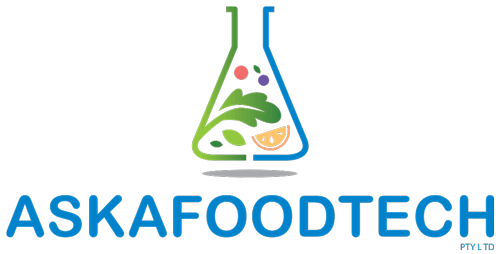Beyond the Recipe: How Food Science Elevates Your New Product's Shelf Life & Quality
Discover how food science elevates new product shelf life & quality. Learn about preservation techniques, packaging science & ingredient interactions that protect your investment. Expert advice for Australian food businesses.
You've poured your passion into a fantastic new food product. The recipe is perfected, the flavour is spot on, and the market is buzzing.
But here's the crucial question:
‘’ How long will it stay fresh and delicious on the shelf? ‘’
In the exciting world of new product development, shelf life and ensuring consistent food quality is just as important as the recipe itself. This isn't magic; it's the meticulous application of food science benefits that truly protects your investment and ensures your product thrives in the competitive Australian market.
The Unknown Challenge: Why Shelf Life is More Than Just "Going Off"
Many producers focus purely on purely on taste, but a new product's success hinges on its product stability. 'Going off' isn't just about mould; it's about changes in texture, colour fading, off-flavours developing, or nutritional degradation. These issues can quickly erode consumer trust and lead to costly waste. This is where food science steps in, proactively addressing these challenges from the outset.
Food Science to the Rescue: Core Techniques for Longevity
Food scientists employ a suite of sophisticated food preservation techniques to extend a product's life without compromising its integrity:
1. Preservation Methods: It's more than just refrigeration! Think about the science behind:
- Thermal Processing: Pasteurisation or sterilisation precisely calibrated to eliminate harmful microbes while minimising impact on sensory attributes.
- Dehydration: Removing moisture (like in your jerky!) scientifically controls water activity, making it impossible for most spoilage organisms to grow.
- Fermentation: Utilising beneficial microbes to produce acids or alcohols that naturally preserve foods, enhancing flavour and stability.
- Modified Atmosphere Packaging (MAP): Adjusting the gas composition inside packaging to slow down spoilage.
2. Ingredient Interactions & Functionality: Food scientists understand how specific ingredients function beyond their primary role. For instance:
- Antioxidants: Used to prevent fats and oils from going rancid, protecting flavour and nutritional value.
- Antimicrobials: Natural or synthetic compounds that inhibit microbial growth, crucial for food safety.
- Emulsifiers & Stabilisers: Maintain product consistency and prevent separation over time, directly impacting product stability.
3. Packaging Science: Often an unsung hero, the right packaging science can make or break a product's shelf life. It’s about more than just aesthetics; it's about barrier properties, light protection, oxygen ingress, and maintaining optimal conditions inside the pack to protect food quality.
Protecting Your Investment: The Business Benefits of Scientific Shelf Life
Investing in food science for new product shelf life isn't just about preventing waste; it's about strategic business growth:
- Reduced Returns & Complaints: Higher quality and stability mean happier customers and fewer issues.
- Expanded Distribution: Products that last longer can travel further, opening up new markets across Australia and potentially globally.
- Optimised Inventory: Better predictability in shelf life leads to more efficient inventory management for you and your retailers.
- Brand Reputation: Consistent quality builds trust and loyalty, reinforcing your brand in a competitive market.
Conclusion
Bringing a new food product to market is an exciting venture, but its lasting success truly depends on a robust foundation of food science. Understanding and optimising new product shelf life and food quality from the outset is paramount.
Don't leave the longevity of your next big idea to chance. At ASKAFOODTECH™, we provide specialist advice in new product development, quality systems, and food preservation techniques. We help Australian food producers apply scientific principles to ensure your innovative products are not only delicious but also stable, safe, and poised for sustained success. Let us help you protect your investment and elevate your brand's future.
Sources:
- Food Standards Australia New Zealand (FSANZ): www.foodstandards.gov.au
- CSIRO (Commonwealth Scientific and Industrial Research Organisation): www.csiro.au/en/research/innovation/CSIRO-futures/Food-sector

About the Author:
Stewart Eddie (Bapp Sc Food Science & Technology) is Director and Principal Food Tech at ASKAFOODTECH PTY LTD; a food technology consulting company that inspires, educates, and serves food producers with an ambition to grow and manage risk. Living with a severe food allergy and being a food technologist, Stewart is uniquely placed to help your food manufacturing business with your allergen management planning. If you would like more information on the services that ASKAFOODTECH PTY LTD can provide, please
contact us.








